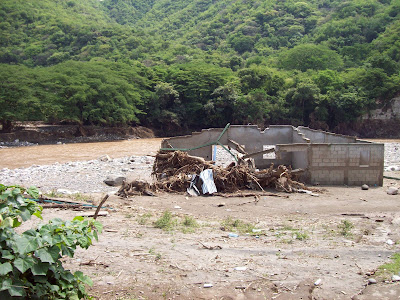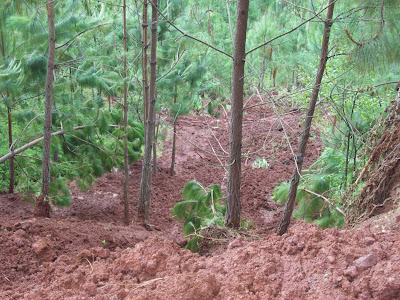 This is our last post for 2011 and just like we did in 2008, 2009 and 2010 we dedicate it to announce that the annual assessments (2010-11) of our planting partners are now available online!
This is our last post for 2011 and just like we did in 2008, 2009 and 2010 we dedicate it to announce that the annual assessments (2010-11) of our planting partners are now available online!Here's a little bit more about these assessments: As part of our pledge to quality service to our customers, we decided at the beginning of our operations to conduct annual assessments of our planting partners.The two main goals of these assessments are: 1. to verify the quality of the planting operations and to make sure the high standards we promise to our customers are kept and 2. to provide our customers with details on the tree planting operations they support to balance out their books.
 This is the fourth year we're conducting these assessments. Right now, two of them (SHI and AIR) are available online, and the third one (RIPPLE Africa) will be available within couple of weeks.
This is the fourth year we're conducting these assessments. Right now, two of them (SHI and AIR) are available online, and the third one (RIPPLE Africa) will be available within couple of weeks.You are invited to read them (see links below) and also visit our planting partners' websites to learn more about them. Links to past assessments for each of our planting partners, as well as links to their websites, are available on our planting partners page.
Here are links to the two reports that are currently available:
AIR's assessment
SHI's assessment
We will keep you posted of course with more data, photos and videos from the planting operations! Thanks again to our planting partners and to everyone that was involved in the work on the assessments.
Photo credits:
Photo 1: SHI, Panama
Photo 2: AIR, Guatemala
Happy New Year!
Raz @ Eco-Libris








































